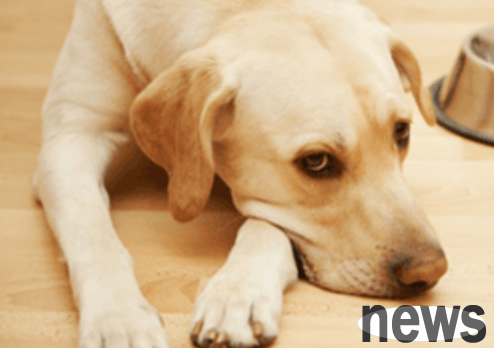When your dog has diarrhea, it may not be a fun experience. Diarrhea is the general name for diarrhea, which generally refers to unformed loose stools passed by dogs. Diarrhea is not actually a disease, but is often a symptom of many different diseases. Diarrhea associated with a minor illness can usually be resolved quickly with simple treatment. However, if left untreated, diarrhea can become serious and even life-threatening due to severe dehydration and electrolyte imbalance. Therefore, we cannot ignore the hidden dangers of dog diarrhea.

What causes my dog to have diarrhea?
Diarrhea is the result of fecal matter passing through the intestines at a faster rate than usual. In this case, the intestines reduce the absorption of water, nutrients and electrolytes, which also makes the stool excreted more watery. If your dog has diarrhea, it is likely that the intestines are invaded by bacteria, viruses, coccidia or intestinal worms. In addition, careless eating (eating garbage or other irritating substances) or changes in diet (changes in feed), or even the stress of changes in the external environment (traveling with a dog, boarding a ship) are also common causes of diarrhea. However, if your dog has chronic diarrhea, it could be a sign of a more serious underlying condition, such as inflammatory bowel disease, organ dysfunction, or other systemic conditions.
Is my dog’s condition serious? Do you need to see a veterinarian?
The severity of diarrhea depends on how long it lasts and how many other symptoms besides diarrhea accompany it. If your dog has blood in his stool, is accompanied by other symptoms such as weakness, fever, vomiting, abdominal pain, or has severe or prolonged diarrhea, it may result in a significant loss of body fluids and further lead to electrolyte imbalance. A better approach at this time is to take your dog to the veterinary hospital as soon as possible to seek medical help. Before consulting a veterinarian, the owner can save the dog's poop and take it with him, because the color, shape and content of the poop can tell the veterinarian more information, which will help the veterinarian determine the cause of the disease and prescribe appropriate medicines.
How to take care of a dog with diarrhea? Can I eat or drink?
When your dog has diarrhea, the treatment involves drug treatment or dietary treatment. If your dog has frequent diarrhea recently, you should pay attention to whether it is caused by changing the feed. You should change the dog's original and familiar feed. For dogs with simple acute diarrhea, a more conservative treatment method is to briefly stop feeding for 12-24 hours. If you are worried about the dog's nutritional status, you can also consider feeding the dog easily digestible food in small amounts and frequently. It is recommended to give a low-fat, low-protein, and high-fiber diet to help the intestines recover from diarrhea-causing conditions. In addition, it should be noted that the dog's water should be replenished from time to time, and the dog's drinking water must not be restricted to avoid damaging the dog's kidneys due to serious dehydration. In addition, nutritional supplements with herbal formulas start from conditioning the dog's physique and can be paired with a high-fiber and low-fat diet to further help restore the pet's intestinal environment.
With good care from the owner, most cases of simple diarrhea will fully recover. However, if the dog has long-term diarrhea, dietary management or medication may be needed to control the condition. If your dog doesn't improve within three to four days, it's time to see your veterinarian for further diagnosis or more aggressive treatment. In addition, if your dog has severe diarrhea, you should seek help from a veterinarian as soon as possible. The veterinarian may also require your dog to be hospitalized for further treatment.